-
-
FeaturesคุณสมบัติPenyelesaianRecursosFiturCaracterísticas精选功能功能特點المزايا
-
Solutionsโซลูชั่นPenyelesaianSoluçõesSolusiSoluciones解决方案解決方案الحلول
-
IntegrationsการผสานรวมIntegrasiIntegraçõesIntegrationsIntegraciones集成整合服務دمج مع تطبيقات أخرى
-
Affiliate/Partnersพันธมิตร/พันธมิตรทรัพยากรAfiliasi/Rakan KongsiAfiliados/ParceirosAfiliasi/MitraAfiliados/Partners联盟/合作伙伴聯盟/合作夥伴شريك
-
ResourcesจองการสาธิตSumberRecursosSumber dayaRecursosالموارد資源中心
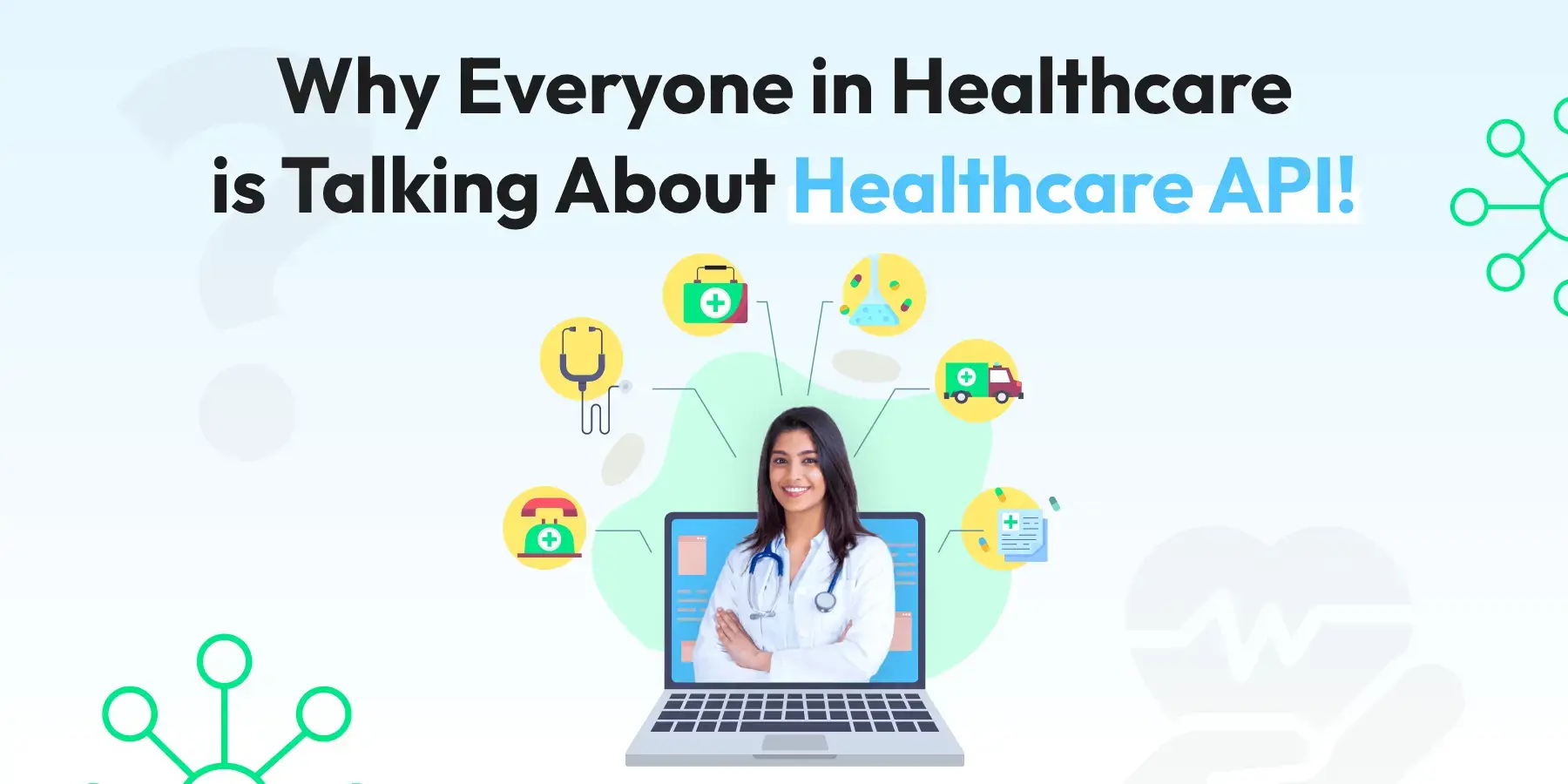
Why Everyone in Healthcare is Talking About Healthcare API!
Ever wished for a magic wand to streamline all those appointment bookings and patient updates? Well, guess what? We’ve got something pretty close, and it comes in the form of WhatsApp API.
In today’s blog, we’re spilling the beans on how this tool is transforming healthcare operations.
We’ll take a deep dive into Healthcare API, its benefits, implementation, and more.
And because we’re all about sharing the love, we’ll throw in some best practices to ensure your patient engagement in healthcare game is on point.
Stay tuned till the end because we’ll also be discussing a game-changing patient engagement platform unlike any other—loads to unpack today. Let’s get right into it.
Benefits of Using WhatsApp API in Healthcare Operations
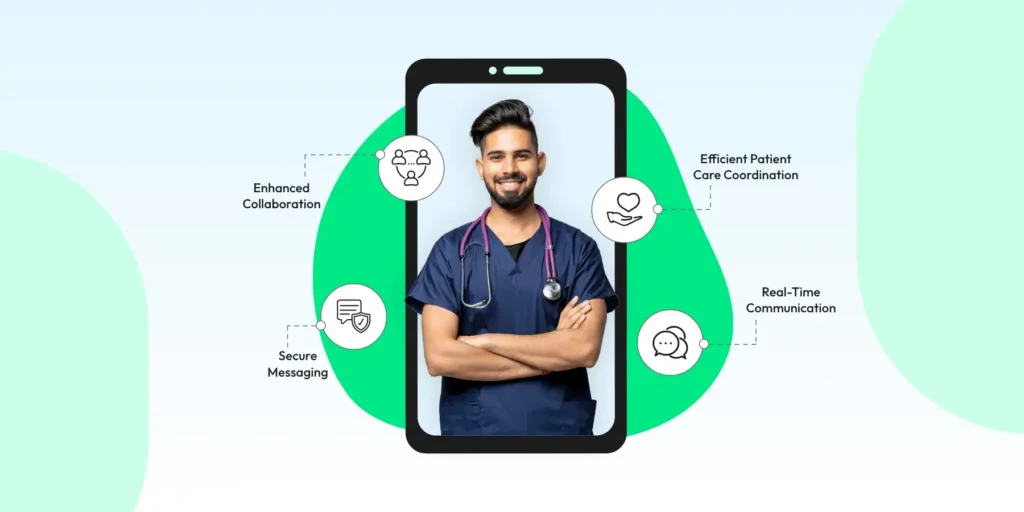
Let’s begin by putting our case for healthcare API forward.
There’s no point learning about implementing something if you don’t actually care for it.
Here’s why you should care about WhatsApp API for healthcare.
A. Real-Time Communication
Imagine a scenario where a patient needs urgent medical advice but can’t reach their doctor. With WhatsApp API, healthcare providers can offer real-time communication channels, ensuring patients get the assistance they need when they need it.
Say a diabetic patient is experiencing a sudden drop in blood sugar levels. They can quickly message their healthcare provider via WhatsApp, receiving immediate guidance on how to manage the situation effectively.
B. Enhanced Collaboration

In the world of healthcare, collaboration is critical. WhatsApp API facilitates seamless communication among healthcare teams, regardless of their physical locations.
Picture a team of doctors and specialists working on a complex case—WhatsApp allows them to share vital information, discuss treatment plans, and collaborate in real-time.
For instance, surgeons preparing for a complicated procedure can use WhatsApp to share preoperative images and discuss strategies, ensuring everyone is on the same page for a successful outcome.
C. Secure Messaging
Privacy and security are paramount in healthcare communications. WhatsApp API for healthcare offers end-to-end encryption and HIPAA compliance, providing a secure platform for exchanging sensitive patient information.
Doctors can securely share lab results, medication instructions, and other confidential data with patients without compromising their privacy. This ensures compliance with WhatsApp for healthcare regulations while maintaining the confidentiality of patient records.

D. Efficient Patient Care Coordination
Coordinating patient care involves multiple stakeholders, including doctors, nurses, specialists, and administrative staff. WhatsApp API for healthcare streamlines this process by enabling efficient communication and coordination among teams.
So, a primary care physician can use WhatsApp to consult with specialists quickly, arrange follow-up appointments, and update patients on their treatment plans—all within the same platform.
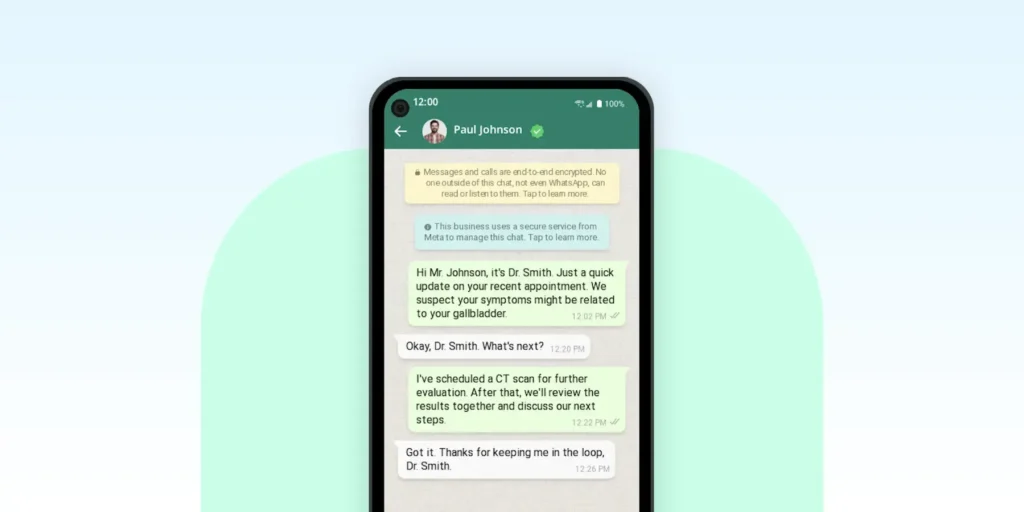
This seamless coordination results in improved patient outcomes and satisfaction.
Now that you understand (and hopefully care about) healthcare API, let’s move on to the practical side of things: IMPLEMENTATION.
Implementation of WhatsApp API in HealthTech
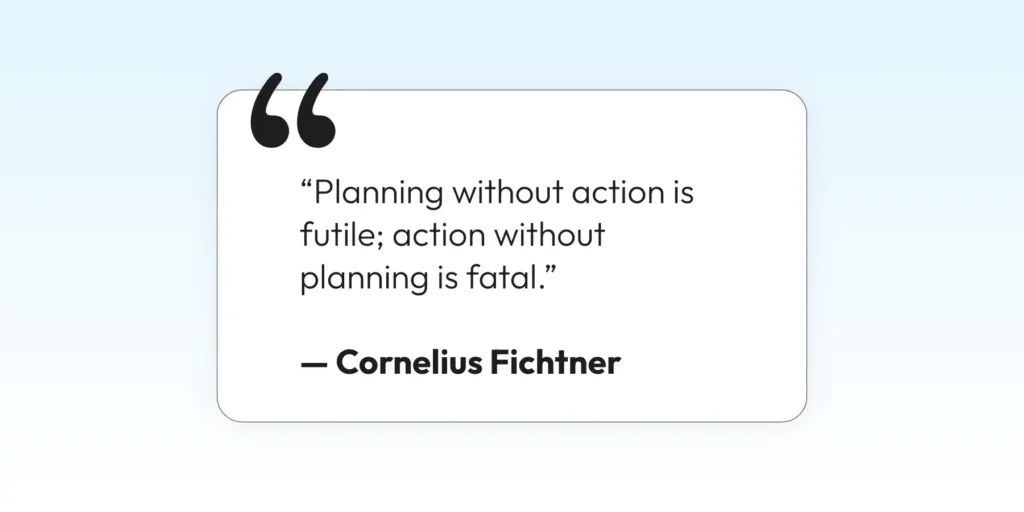
With this thought in mind, let’s get to where the action is.
1. Integration Process
The healthcare API integration requires careful planning and execution. It involves connecting the API with existing healthcare platforms, such as Electronic Health Records (EHR) systems or appointment scheduling software.
Healthcare organizations may need to work closely with third-party vendors like Wati to ensure seamless integration, allowing patient data to flow securely between systems.
2. Training and Onboarding
Successful implementation of WhatsApp API hinges on practical training and onboarding of healthcare staff. Training sessions should cover how to use the API for various tasks, such as appointment scheduling, patient communication, and sharing medical information.
So frontline staff, including receptionists and nurses, may require training on how to use WhatsApp for patient outreach. At the same time, clinicians may need guidance on securely exchanging medical data via the platform.
3. Customization for Healthcare Needs
Every healthcare organization has unique requirements and workflows. This makes customization a crucial aspect of healthcare API implementation.
Customization involves tailoring the API to meet specific healthcare needs, such as language preferences, appointment types, and communication protocols.
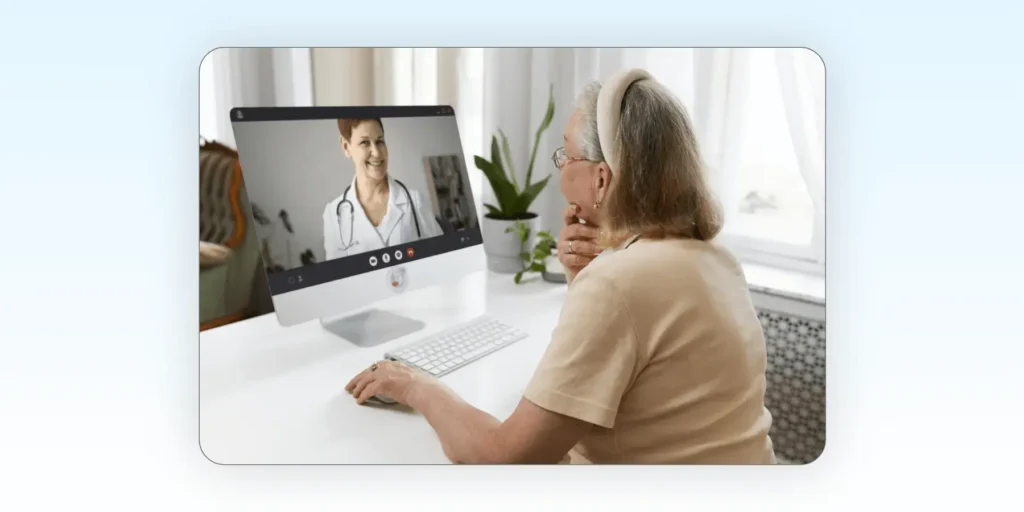
For example, hospitals may customize the API to include multilingual support for diverse patient populations or integrate additional features for telemedicine consultations.
Also Read: Use Cases of WhatsApp API in Telemedicine
4. Ensuring Compliance with Regulations
Compliance with healthcare regulations like:
- HIPAA (Health Insurance Portability and Accountability Act)
- GDPR (General Data Protection Regulation)
is paramount during WhatsApp API implementation. Healthcare organizations must ensure that patient data exchanged via the API remains secure and confidential.
Implementing encryption protocols, access controls, and audit trails can help safeguard patient information and maintain compliance with regulatory standards.
Best Practices for Utilizing WhatsApp API in HealthTech
It’s not always necessary to commit mistakes to learn something valuable. Instead, you can learn from the ones that have been made already and be cautious.
And since we don’t want you to make avoidable mistakes on your healthcare API journey, we’ve created a list of the best practices to follow.
| What | Why | How |
| Establishing Communication Protocols | Clear communication is the backbone of successful healthcare operations using WhatsApp API. Establishing communication protocols ensures that all staff members understand how to use the API effectively and adhere to best practices. | Define Guidelines: Create documented guidelines for messaging etiquette, response times, and escalation procedures. Provide Training: Conduct training sessions to educate staff members on communication protocols and best practices. Enforce Compliance: Monitor adherence to protocols and provide feedback to ensure consistent implementation across the organization. |
| Ensuring Data Security | Data security is crucial for maintaining patient confidentiality, preventing unauthorized access, and complying with healthcare regulations. | Encryption: Implement end-to-end encryption to secure messages and data transmitted via WhatsApp API. Plus, ensure HIPAA messaging. Access Controls: Restrict access to patient information based on role-based permissions and authentication protocols. Regular Audits: Conduct regular security audits to identify vulnerabilities and address potential threats to data security. |
| Providing Continuous Support and Training | Continuous support and training ensure that staff members remain proficient in using the API, leading to improved efficiency and patient satisfaction. | Training Sessions: Schedule regular training sessions to update staff on new features, best practices, and troubleshooting techniques. Support Channels: Establish dedicated support channels, such as help desks or online forums, for staff to seek assistance and share knowledge. Feedback Mechanisms: Encourage feedback from staff members to identify areas for improvement and tailor support and training initiatives accordingly. |
| Monitoring and Evaluation | Monitoring and evaluation provide insights into the impact of the API on patient care, operational efficiency, and compliance with healthcare standards. | Key Performance Indicators: Define relevant metrics, such as response times, patient satisfaction scores, and adherence to communication protocols. Data Analysis: Collect and analyze usage data, user feedback, and performance metrics to identify trends and areas for improvement. Actionable Insights: Use insights from monitoring and evaluation to inform decision-making, optimize workflows, and enhance the overall quality of healthcare services. |
Wati: The Ideal Healthcare API Solution
Patient engagement in healthcare can be tricky.
And since it’s the season of expertise, maybe you get one yourself.
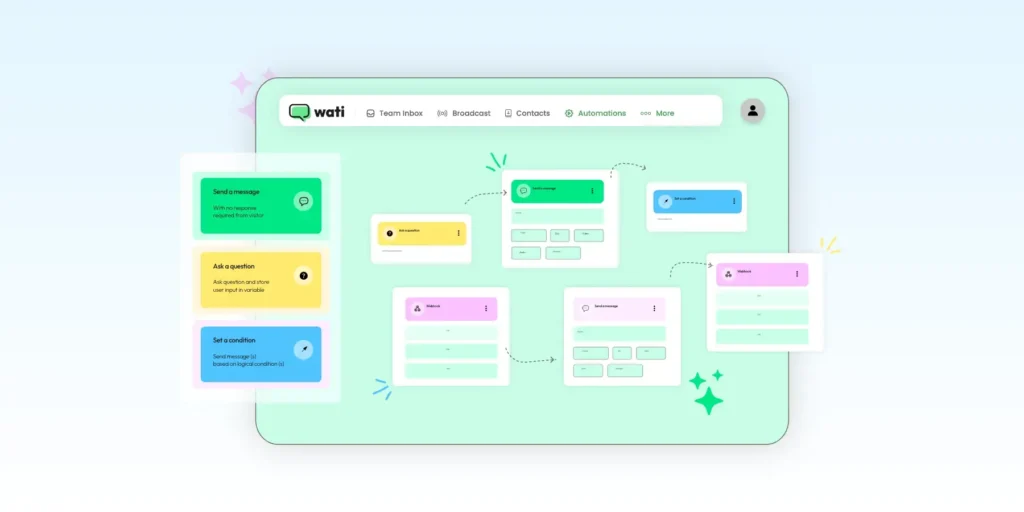
Wati is a premier WhatsApp Business API provider offering secure messaging solutions tailored for healthcare organizations. With this patient engagement platform, healthcare providers like yourself can securely send appointment reminders, medical reports, and other patient-related information, ensuring confidentiality and integrity in communication.
Our platform allows doctors and healthcare professionals to design WhatsApp chatbots with advanced appointment booking systems, providing continuous patient support 24/7.
Also Read: Using Healthcare Chatbots on WhatsApp
Whether it’s scheduling appointments or providing post-consultation follow-ups, this patient communication platform streamlines the entire process, making healthcare communication effortless and efficient.
With an expertise in secure messaging and healthcare solutions, Wati enables healthcare providers to enhance patient engagement and improve healthcare outcomes.
Ready to streamline your healthcare operations and automate online medical appointments? Sign up for a 7-day free trial today or book a demo to kickstart your healthcare API journey.
You won’t regret it!
Final Words
From telemedicine providers streamlining appointment scheduling to hospital systems enhancing internal communication and pharmacy chains providing personalized patient support, the possibilities are endless with healthcare API.
By embracing this innovative technology, healthcare organizations can effectively meet the evolving needs of patients and healthcare professionals alike.
By harnessing the power of telehealth API and other cutting-edge technologies, we can create a healthcare ecosystem that is more accessible, efficient, and patient-centered than ever before.
Here’s to embracing the future of healthcare API with open arms.
Frequently Asked Questions (FAQs)
What features of the WhatsApp API enhance collaboration among healthcare professionals?
Features like group messaging and file sharing in WhatsApp API facilitate seamless collaboration among healthcare professionals, allowing for quick information exchange and teamwork.
Is messaging through the WhatsApp API considered secure for healthcare communication?
Yes, messaging through the WhatsApp API is considered secure for healthcare communication due to its end-to-end encryption, ensuring patient data privacy and compliance with security standards.
How does the WhatsApp API compare to other communication tools commonly used in healthcare?
Compared to other communication tools, WhatsApp API offers a familiar user interface, real-time messaging, and multimedia support, making it an efficient and accessible option for healthcare communication needs.
What regulatory compliance considerations are involved in using the WhatsApp API in healthcare?
Regulatory compliance considerations when using WhatsApp API in healthcare include adherence to data protection laws like HIPAA, ensuring secure transmission of patient information, and obtaining patient consent for communication via WhatsApp.
Latest Comments